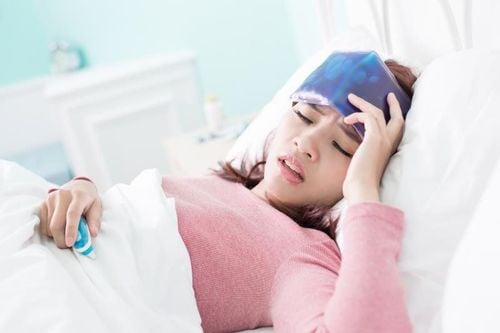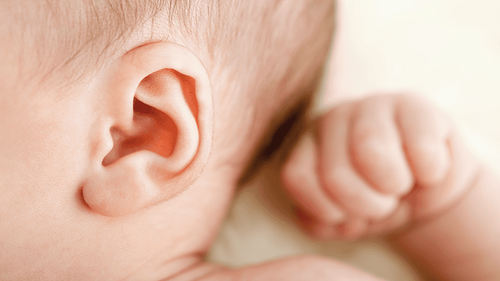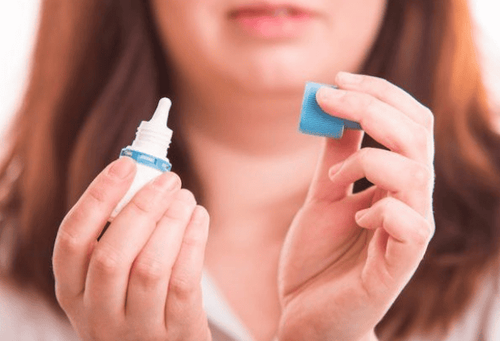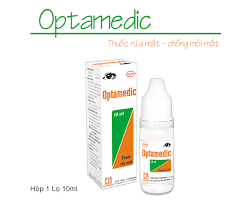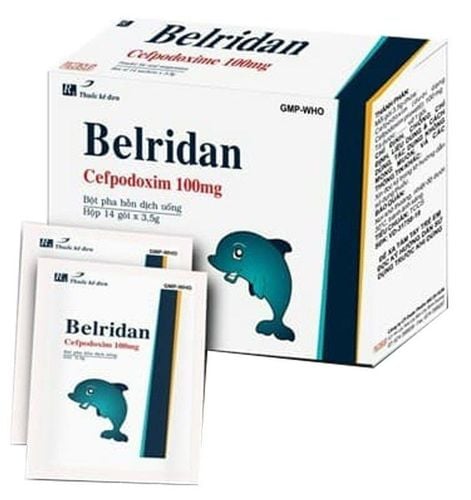This is an automatically translated article.
The article is professionally consulted by Specialist Doctor II Nguyen Van Thai - Doctor of Otolaryngology - Department of Otolaryngology and Head and Neck Surgery - Vinmec Danang International General HospitalOtitis media is an infection and damage to the middle ear caused by bacteria that multiply and grow in the ear or from the outside environment. The phenomenon of acute otitis media can gradually turn into otitis media with pus, pus or fluid if not handled properly.
1. Why is otitis media easy to recur?
Usually, symptoms of otitis media are expressed through the patient often having ear pain, discomfort in the ear, fever, fatigue, tinnitus, hearing loss,... In the case of middle ear pus appears and if this pus is not treated, it can cause perforation of the eardrum. And if otitis media with seroma, there is a high risk of having fibrous adhesions.Treatment depends on the stage of the otitis media. Acute otitis media is usually divided into 3 stages: the congestive phase, the purulent stage, and the purulent rupture phase.
Depending on the stage of the disease, the doctor will have appropriate treatment indications. However, many patients experience recurrent otitis media, which may be caused by:
Late detection makes the disease worse, making it difficult to treat Improper treatment is also the cause. recurrent otitis media. Incomplete treatment is a problem many people have. Failure to comply with the doctor's instructions when the symptoms are gone is to stop the drug, causing the disease to not completely heal, causing a quick recurrence Without proper care, the patient after treatment Failure to do regular check-ups and follow-up on schedule and failure to adhere to effective preventive measures will cause the disease to continue to recur.
2. How to cure otitis media in children

In case the child has symptoms of otitis media, parents need to take the child to a specialist for examination and appropriate treatment. The doctor will conduct an examination of the eardrums in both ears and the baby's upper respiratory system to be able to properly diagnose the disease and give the right medicine. Most mild to moderate ear infections will go away completely without antibiotic treatment. That's why the American Academy of Pediatrics recommends that doctors approach the disease as "Watch and Wait".
Observing here means focusing on the baby's expressions, see if the baby is in more pain. Waiting means that the doctor will not immediately use antibiotics for the baby, even if the middle ear area has been determined to have fluid. After 2-3 days that the baby's disease does not improve, the doctor will now consider the use of antibiotics for the baby.
How to clean the ears for children with otitis media
When children have otitis media or acute otitis media, it is necessary to clean the baby's ears according to the specific instructions of the doctor. Mothers can take care of children with otitis media according to preliminary instructions as follows:
Use a washcloth dipped in warm water and squeeze out the water to wipe the baby's ears. Then, the mother drops 1 to 2 drops of physiological saline into the ear. Or mom can also use earwash every day to get better quickly.
3. How to prevent otitis media for babies

Breastfeeding: breast milk provides and strengthens immunity. natural translation for babies. Give your baby a bottle in an upright position (at an angle of at least 30 degrees) and hold that position for at least 30 minutes after the feed is finished. Keep your baby away from potentially irritating substances that produce mucus in your baby's nasal passages and middle ears. Stuffed animals, pets and anything with fur should be kept away from where the baby sleeps and absolutely no smoking around the baby. Limit the use of a pacifier when your baby sleeps at night, especially for babies 6 months and older because research has shown a correlation between pacifier sucking and otitis media. Boost your baby's immunity by feeding them lots of fruits, vegetables, and seafood. The good news for parents is that as your baby grows, the eustachian tube will get longer, narrower, and more inclined. This will prevent bacteria and mucus from "marrying" into the baby's middle ear. Middle ear infections in children can be completely treated with simple home remedies without the use of antibiotics. It is important to correctly identify the symptoms so that timely care and treatment can be given to your baby.
When children show signs of otitis media, parents need to go to an Ear, Nose - Throat specialist to be examined, diagnosed, and treated immediately to avoid unwanted complications.
Otolaryngology - Vinmec International General Hospital is an address specializing in the examination and treatment of otitis media as well as common ENT diseases, head and neck tumors, regional congenital malformations. otolaryngology using common surgical methods such as surgery, microscopic or endoscopic tympanic patch, fistula removal surgery, Bondy surgery, nasopharyngeal nebulizer, nasal tip injection, nasal burning... especially with a system of examination instruments such as Karl Storz's otolaryngoscope, electron microscope, modern audiometer system, ... will help diagnose and best treat patients.
Please dial HOTLINE for more information or register for an appointment HERE. Download MyVinmec app to make appointments faster and to manage your bookings easily.






